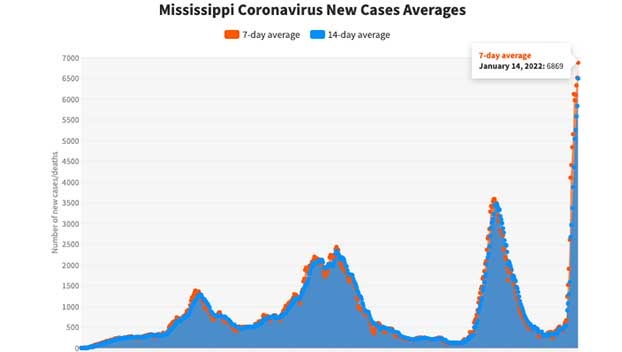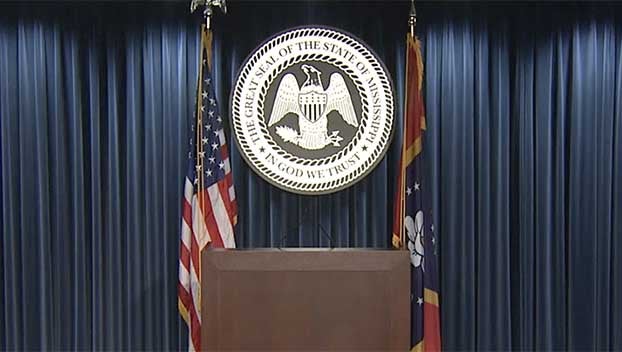In real life, the Egg Bowl rivalry hasn't changed. On Twitter, it's a dumpster fire.
Published 8:15 am Wednesday, November 22, 2017
Not growing up in Mississippi put me at a disadvantage when it came to understanding the Egg Bowl. Sure, I understood what it was, and why intrastate rivalries can be particularly intense in states without professional teams.
But I didn’t get it, not entirely, and my father was no help in the matter considering he spent half a century believing LSU was Ole Miss’ “real” rival and “no one’s ever been concerned with Mississippi State.” (Most Ole Miss quote ever—I know.)
Two things to keep in mind: 1) He came from a Mississippi State family, a Rebel in the purest sense, and 2) he grew up in the Vaught era when Ole Miss dominated the rivalry. After State walked away with the Golden Egg in 1946, the year he was born, the Bulldogs wouldn’t see that trophy again until 1964—the year he graduated from high school.
It wasn’t until I moved back to Mississippi after college that I realized just how passionate fans are about this rivalry, and how that’s not always a compliment. Add in Dan Mullen’s TSUN-tinged bravado (and the success that came with it), a few competitive recruiting classes and a multi-year NCAA investigation against Ole Miss that largely hinges on the testimony of Mississippi State’s Leo Lewis, and you’ve got a lot to fight about if you’re so inclined.
My former Clarion-Ledger colleague, Hugh Kellenberger, wrote a column last year about how the Egg Bowl rivalry had become “toxic”—an assessment I agree with, for the record, and one that ruffled a lot of feathers among Ole Miss and State fans who didn’t like being associated with a term suggesting the schools’ competitive rivalry was harmful or unhealthy.
Let’s back up for a minute. From a historical perspective, the rivalry’s always been an important one to both schools. Earlier this week, I wrote about MSU (then Mississippi A&M) students staging a funeral march in the streets of Jackson after beating Ole Miss in 1905. The Golden Egg trophy itself, intended to foster goodwill between the teams and their fans, was the result of a brawl after the two teams met in 1926.
The stereotypes and even the self-imposed labels attached to both schools aren’t new either. MSU is the “cow college”; Ole Miss is for snobs and women who only attend to find a husband. MSU is the State’s university, Ole Miss the Flagship.
What’s changed isn’t so much the rivalry itself, but how fans interact, particularly on Twitter, which is an ideal forum for both sports fans and people who enjoy harassing others without consequences. The term “fringe fans” comes to mind when I think about the disturbing depths to which some go on social media for the sole purpose of saying “my team’s better than yours.” They’re the Harvey Updykes of the world, those who take sports rivalries so seriously it reaches the point of obsession.
Social media emboldens and amplifies these personalities, allowing them to do so anonymously or with made-up identities so they can separate real life from their online personas. Every fanbase has them. And while they’re no more representative of a school or its fans than Westboro Baptist Church is representative of Christianity, they have a prominent platform on which to speak, to troll opposing fans, to pick fights, harass players and coaches and to create a toxic (hey, there’s that word again) environment for everyone else.
Some will say the vitriol lives only on social media and doesn’t transcend into real life. I’ve had Ole Miss and State fans tell me they’ve been reprimanded at work because someone on Twitter called their boss either with false allegations or merely to tell them their employee is on Twitter during the workday.
Some will say these people aren’t functioning members of society, the kind of people who’d rather play video games in their parents’ basement all day than have real lives. Nope. They’re doctors, lawyers, teachers, pastors, business owners, neighbors and even some of your friends—people with families and otherwise fulfilling lives. (Personal example: A current Mississippi high school football coach has spent years harassing me online solely because I went to Ole Miss and he vehemently disagrees with that decision.)
Some will say it’s just football. The problem with that is this constant back-and-forth is rarely, if ever, about football. It’s about bullying. And power. And knowing nothing’s really going to happen to you as a result. People attaching themselves to the cause of a sports rivalry and using it as justification for cruelty.
Most Ole Miss and Mississippi State fans aren’t these people. But it’s undeniable that “fringe fans” have a louder voice in this rivalry and many others because of how we use social media. It’s changing how many of us interact as a result just to avoid petty personal conflict over something as silly as a football game. Rivalries can and should be exciting and competitive. It should bring out your best trash talk or feigned indifference toward the other team. It should sting a little (OK, a lot) when your team loses and you know you’re going to hear about it at work Monday.
And above all, rivalries should be fun. Not poisonous. Not miserable. And certainly not “toxic.”
This rivalry is one of the oldest in college football and something Mississippi should be proud of. It deserves to be known for more than being the “most hate-filled in college football” to the extent that both schools’ athletic directors released a joint statement asking adults to treat each other with civility at a college football game.
It deserves more. And so do the fans.





